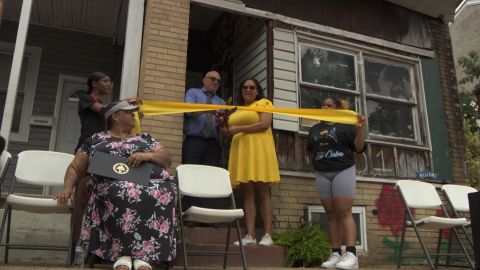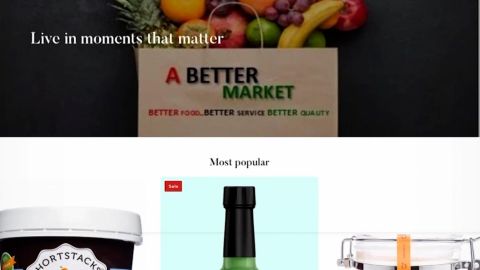Find Out How You Can Help During Hunger Action Month
From NJTV News‘ Correspondent Lyndsay Christian:
This month, Congress will vote to finalize the federal budget. That right now includes less money for supplemental nutrition programs like food stamps or SNAP that close to a million New Jersey residents have relied on. Just last year, the Community FoodBank of New Jersey distributed more than 50 million pounds of food, an all time high. For those who are still Chasing the Dream this is Hunger Action Month. The Community FoodBank of New Jersey’s President and CEO Debra Vizzi spoke with NJTV today.
Christian: So Debra, today is Hunger Action Day which is why I’m wearing orange, the official color, to raise awareness that one in eight Americans are struggling with hunger. But looking at the big picture, talk about the goals of Hunger Action Month.
Vizzi: It’s two folded really. It’s a call to action for the state and for the country around hunger and food insecurity. We specifically selected September as a way to highlight two things. We’re entering a very busy season where people are celebrating an abundance in harvest. And secondly it ends the most critical period for us, where children are in school, and then out of school, and missing meals in the summer. So it’s sort of a reminder, again, as we kick off the Fall, about how families, individuals, organizations can do something to help the hungry.
Christian: What exactly is food insecurity? Tell us the definition.
Vizzi: Basically, it’s that someone doesn’t know when their next meal is coming from. Often the folks that we’re seeing are working poor. Fifty percent or more of the folks that we see throughout the state have a working member in their household, which is a very different story than when the FoodBank first started. It means that they do have an income, but they can’t make ends meet. So they don’t necessarily know when their next meal is going to come from. They skip meals, or skip family meals, in order to make ends meet.
Christian: This is critical. We talked to you this time last year about New Jersey, what are the numbers looking like compared to last year? Are they better, worse, about the same in terms of those who are food insecure?
Vizzi: I think we’re making a dent, particularly for children where we’ve seen some of the numbers go down. But the need is still great. I think we can thank the state of New Jersey and all the people who support the FoodBank for that improvement. However, there are people we don’t necessarily see — seniors who are isolated, children that don’t come to a pantry, children that don’t access free lunches or aftercare programs that we’re a part of. So while the need has somewhat changed, there is still hunger in every community in New Jersey.
Christian: I know you can relate on a personal level, you’ve talked about this before growing up where you oftentimes didn’t have something to eat. So, what was that like and how has that shaped your mission because you’re very passionate about this?
Vizzi: It’s informed my career. It’s particularly informed my leadership around hunger because I think in this country we think of hunger in a stereotypical way. It may be an overseas problem, hunger looks like this, hunger looks like that, it’s the one area that we can all agree that we can’t live without. We can’t live without food. Being able to passionately speak about it as the leader of the largest anti-hunger anti-poverty organization, but also inform my own personal narrative, has been very powerful for me and for the people that I speak to throughout the state.
Christian: Well, your work certainly is shining throughout. I know that the FoodBank is supporting Texas and Florida and those who have been affected by the Hurricanes Harvey and Irma. What can people do to help with those relief efforts and continue to help throughout the month of September?
Vizzi: I think it’s really a call to action. I think most people think of the Community FoodBank of New Jersey having its boundaries in New Jersey. However, because of our unique position dealing with Hurricane Sandy, we are informing a lot of technical areas for other states. The food banks throughout the country are not necessarily the first responders, but we are the people that make things stable after the storm. This past weekend we delivered pallets of food to Puerto Rico, we were involved in Texas, we have a former staff person down there, and we’re obviously mobilizing for Florida. The thing for everyone to really think about as we enter into the season is how can they donate, how can they share the message and of course, monetary contributions are the most important because we can leverage our purchasing power much different than a consumer.
Christian: Of course, one dollar equals three meals. Debra, thank you so much for joining us.
Vizzi: It was my pleasure.



